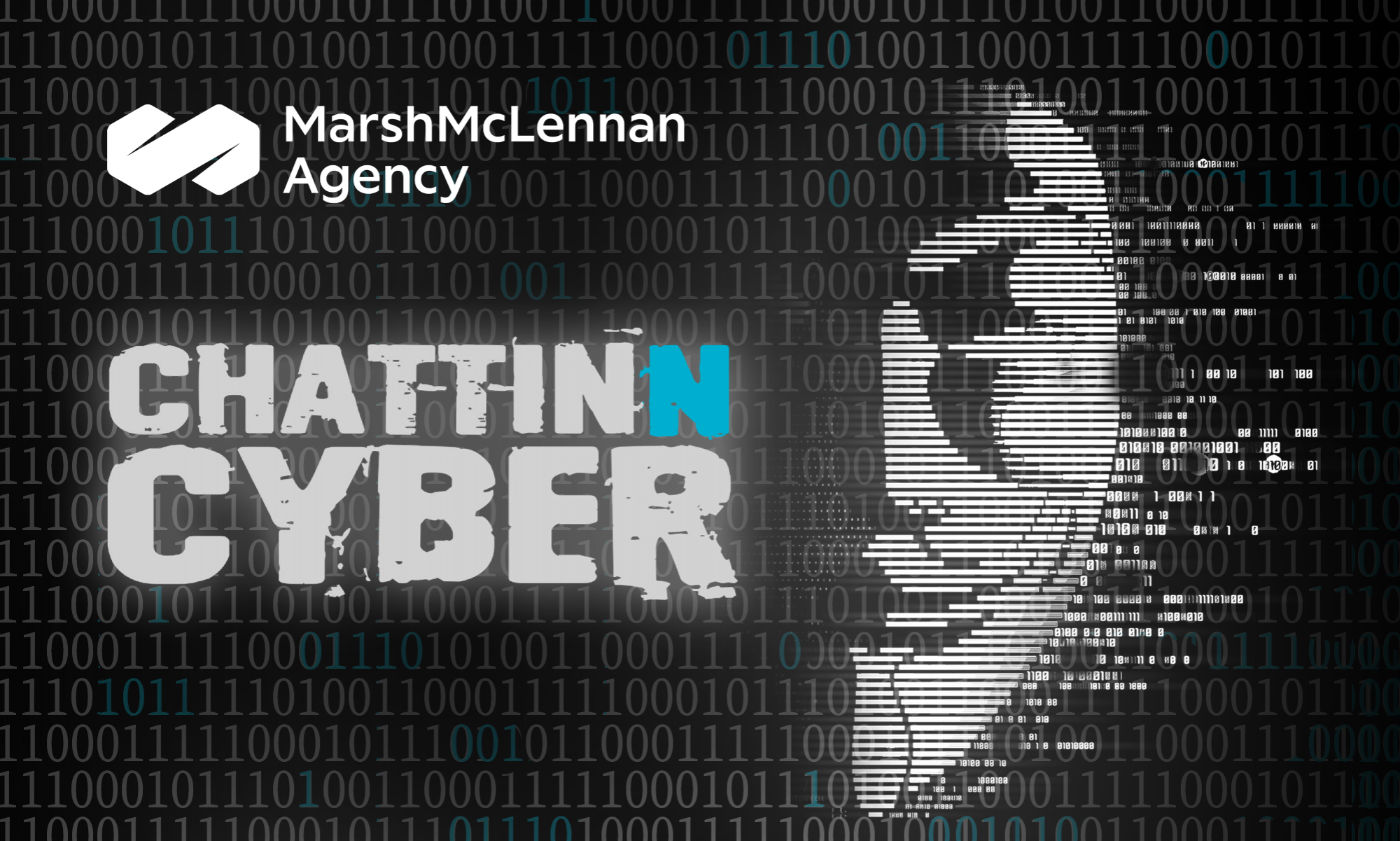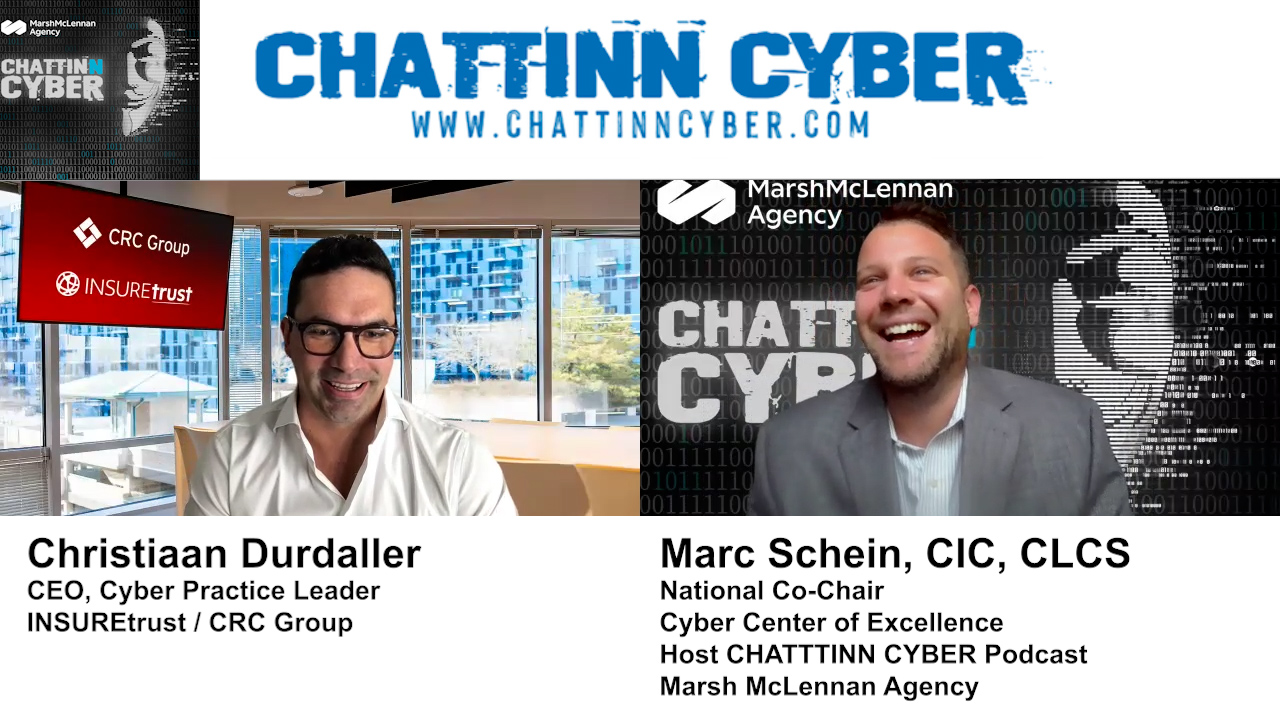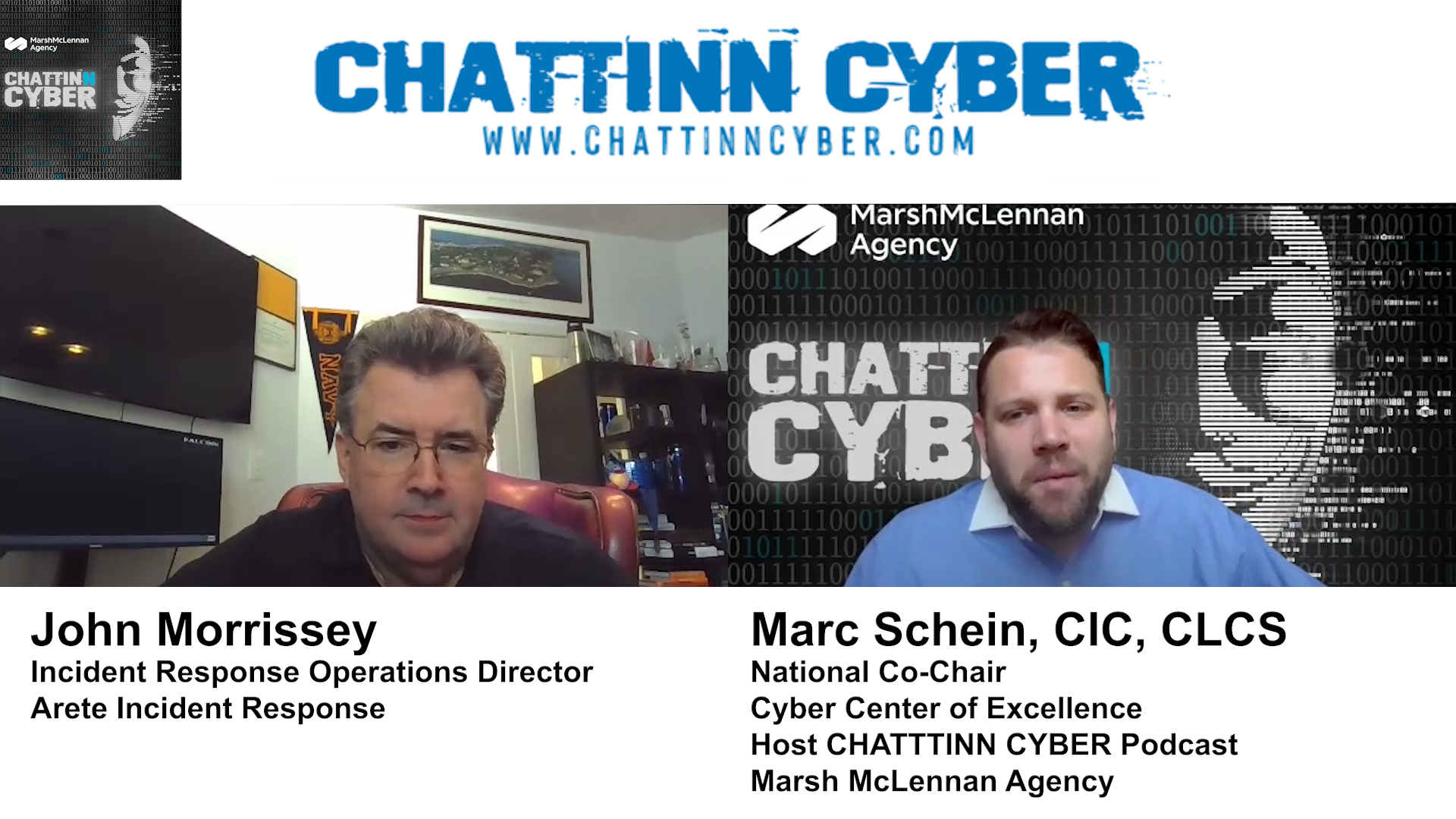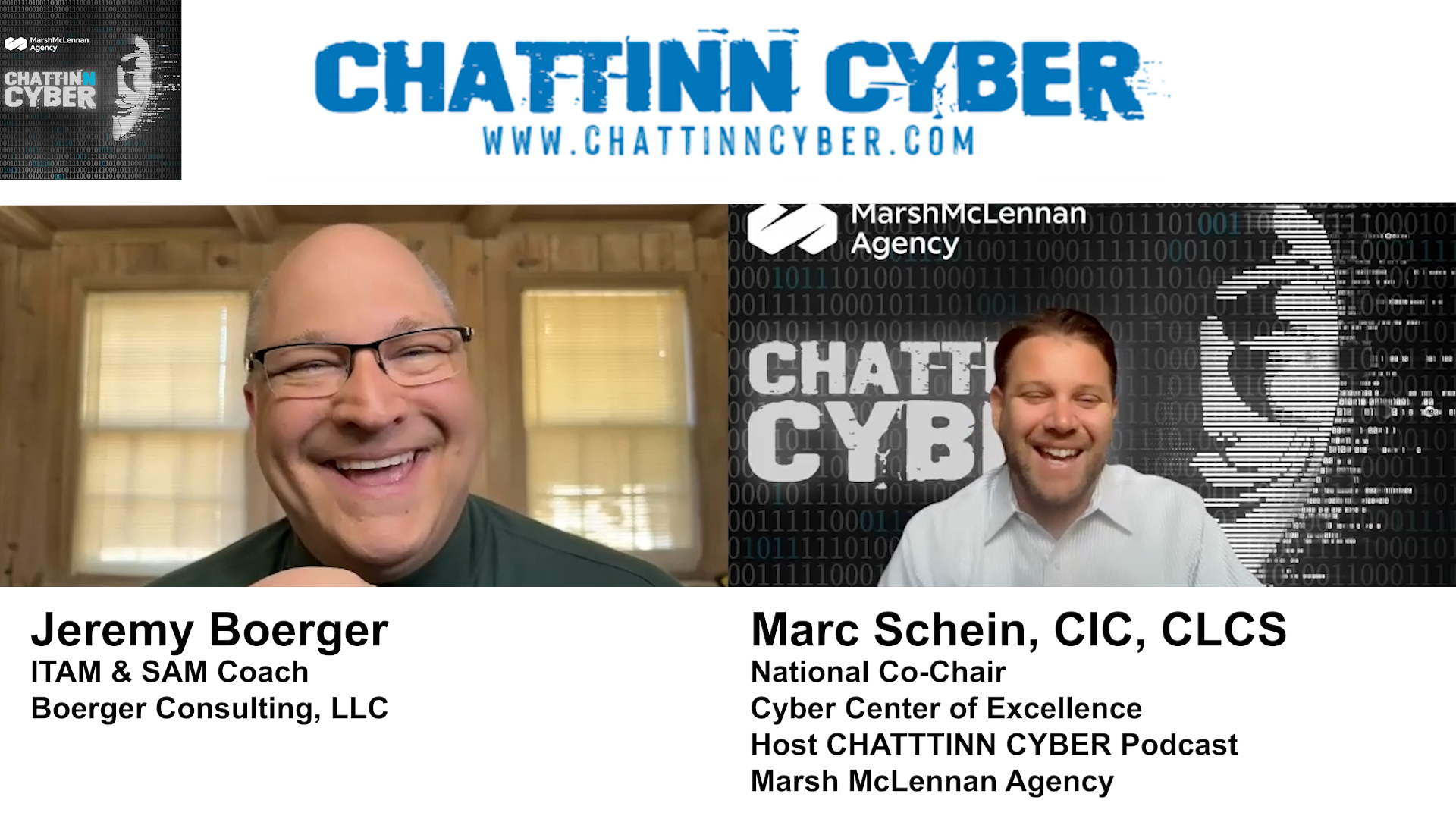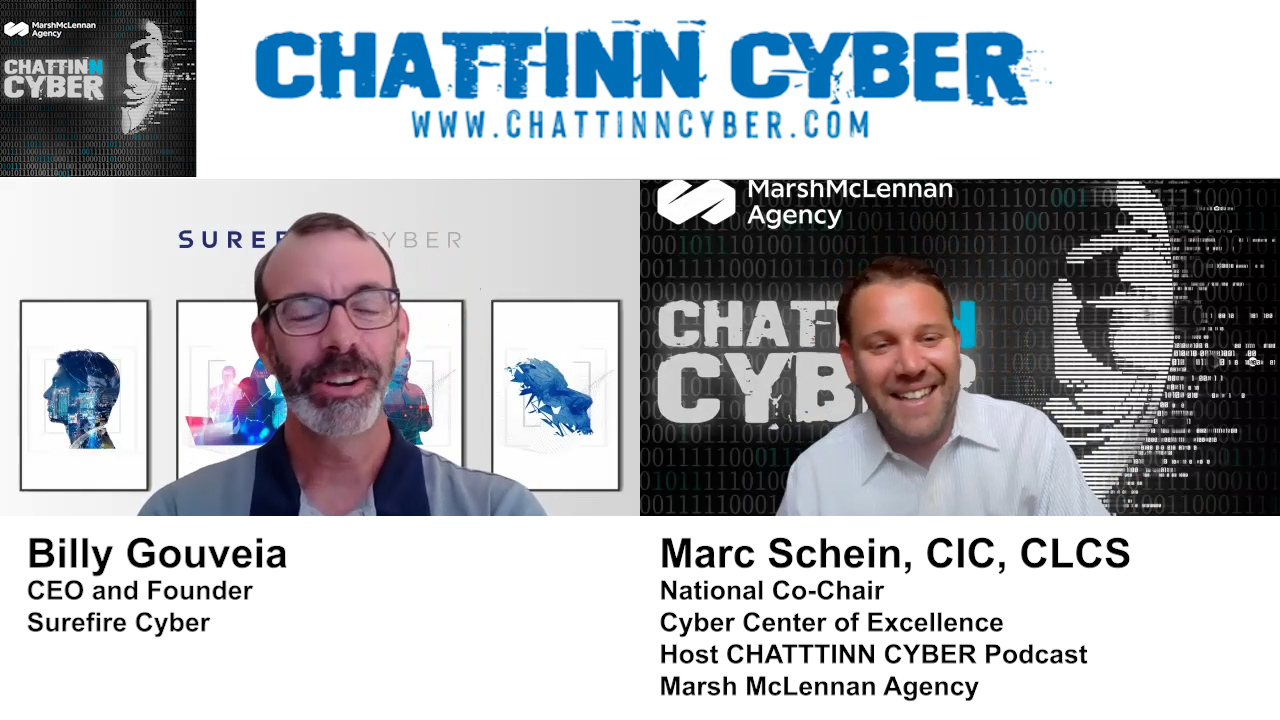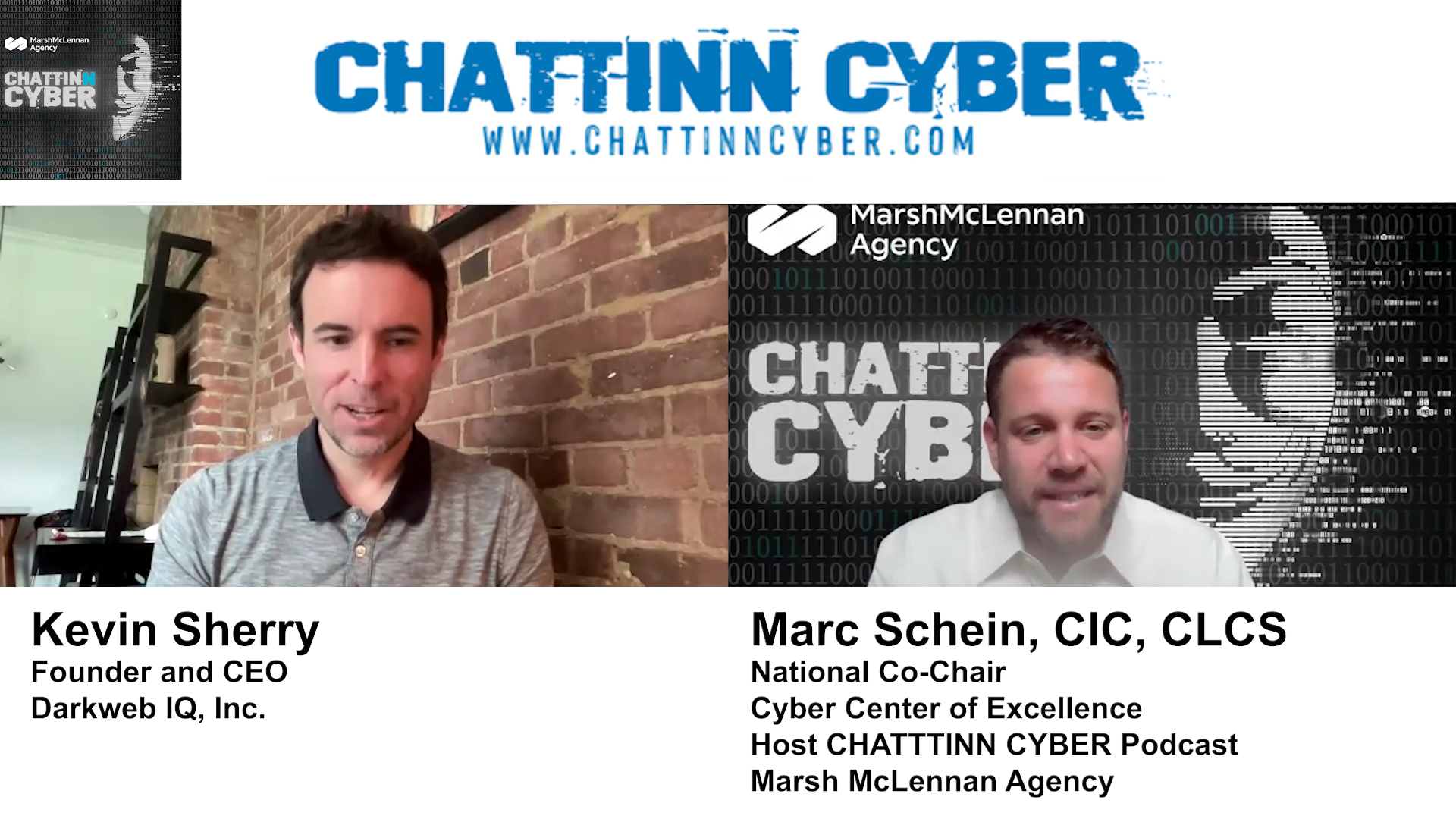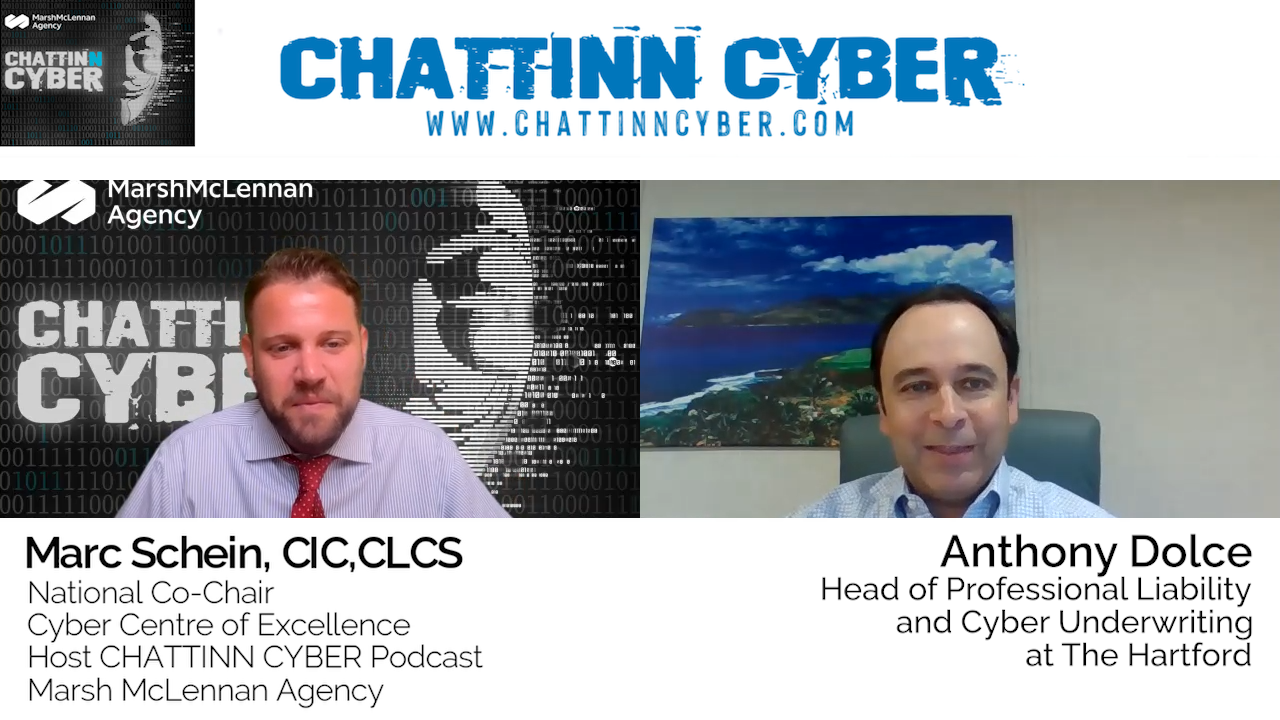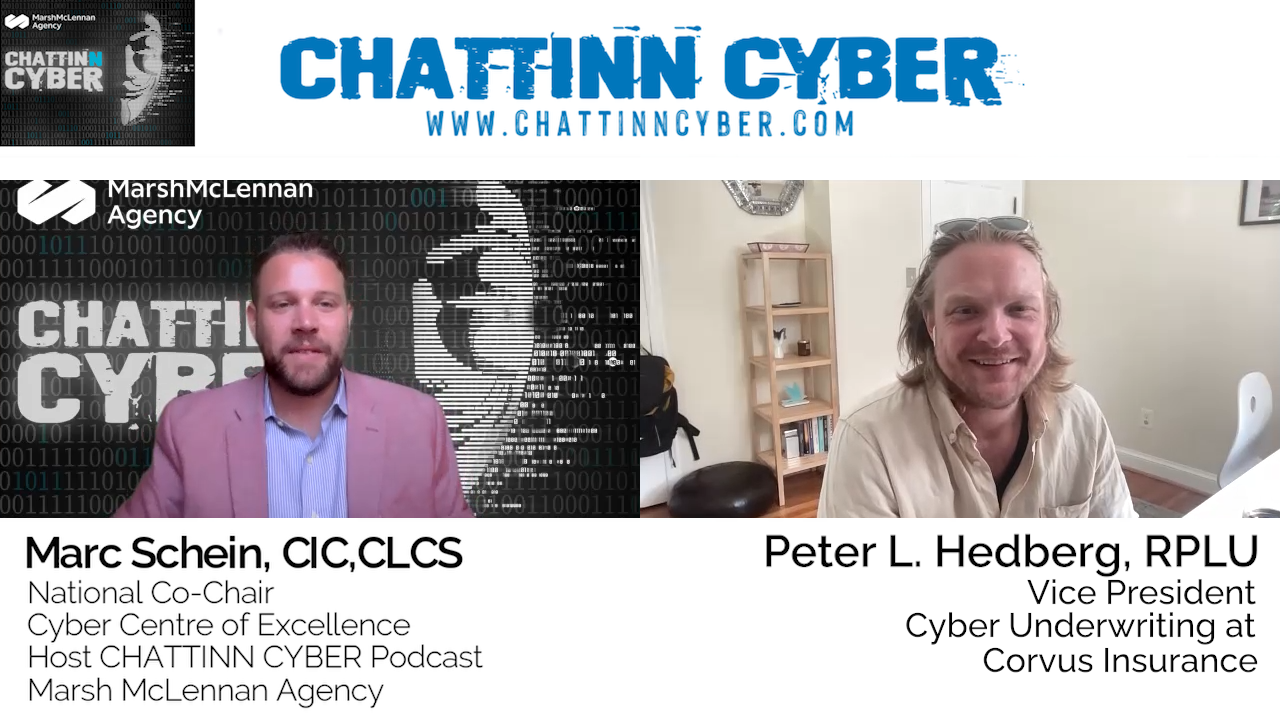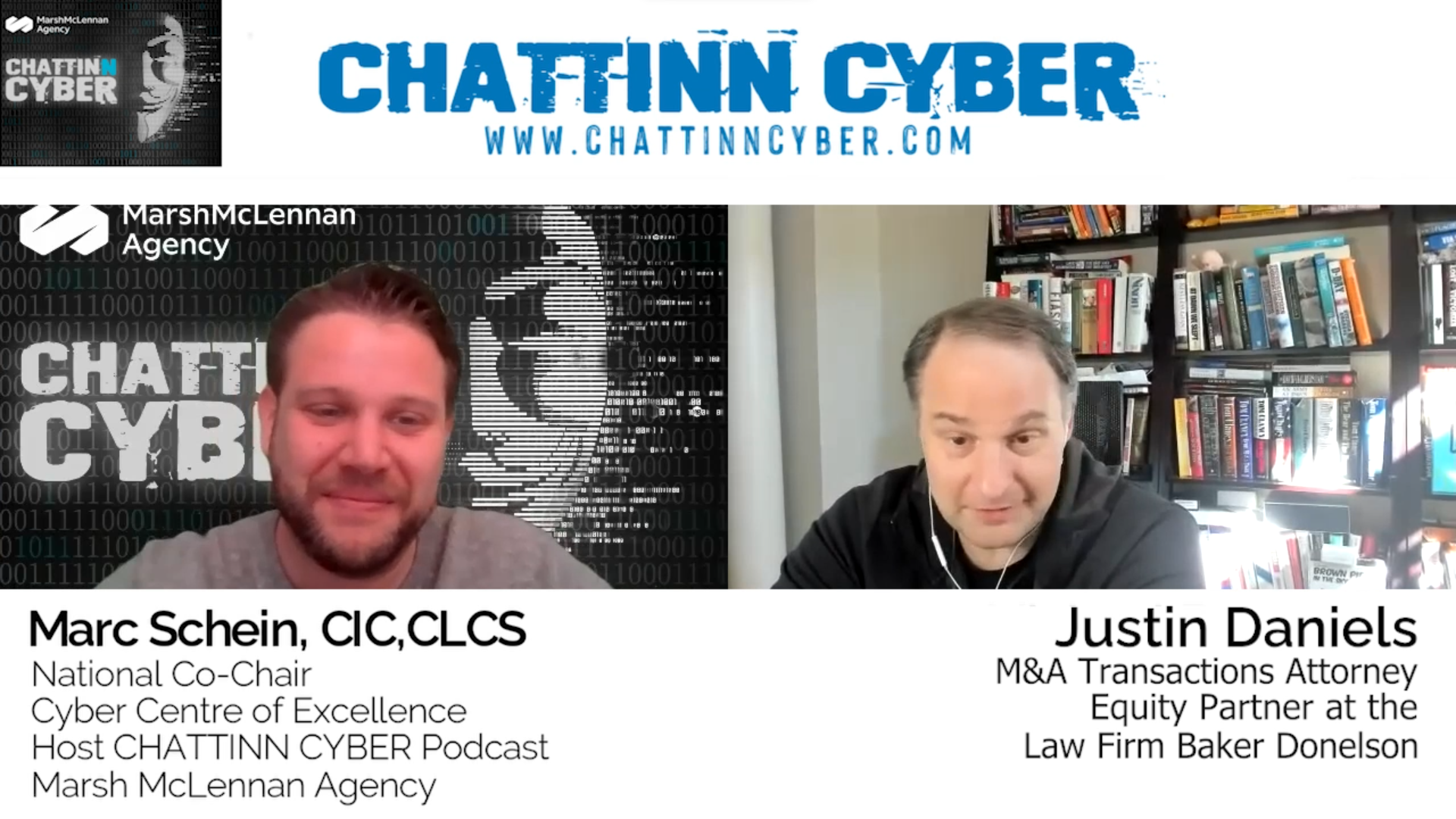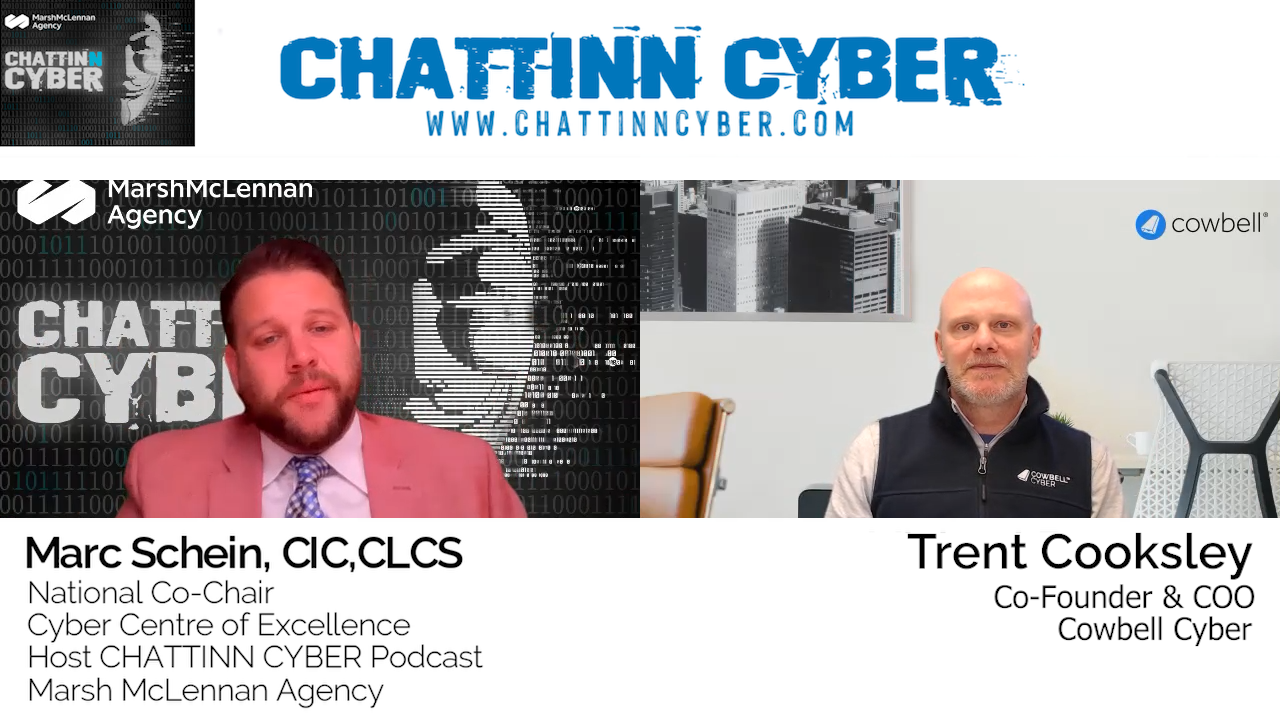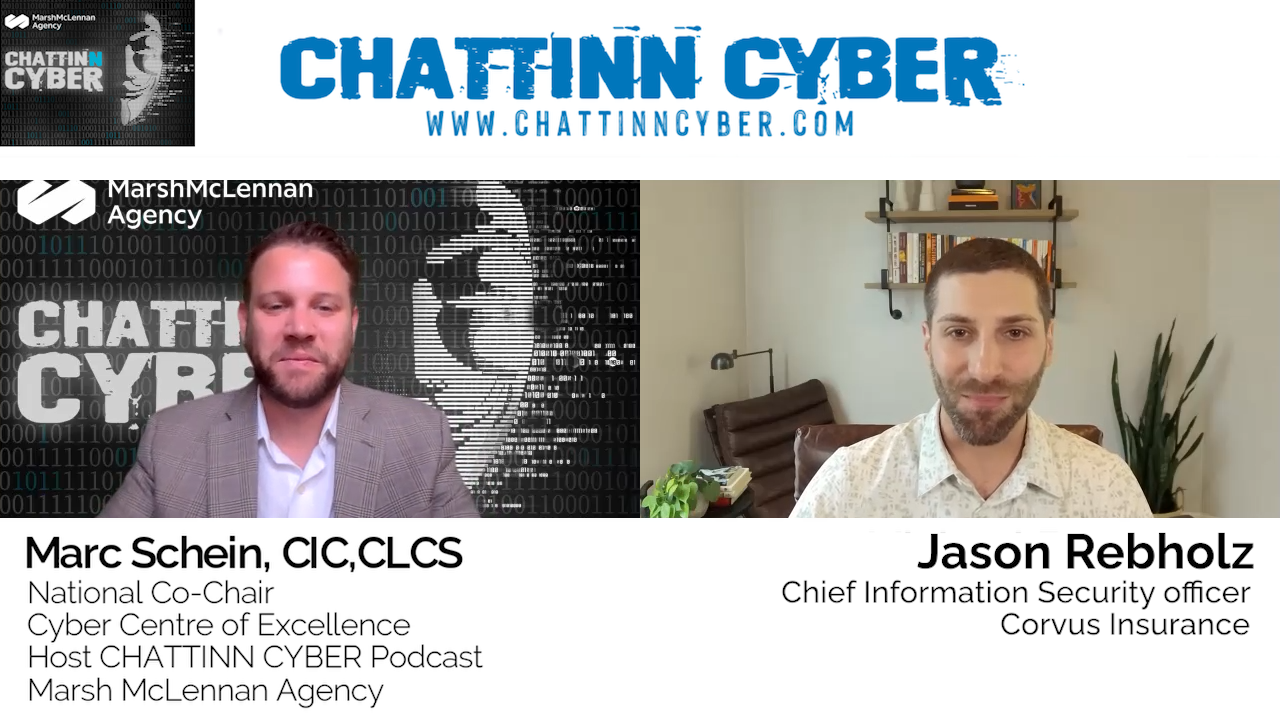Podcast: Play in new window | Download (Duration: 19:51 — 27.3MB)
Subscribe: RSS
Summary
In this episode, Marc Schein is chattin’ with Christiaan Durdaller, a cyber expert and founder of an innovative wholesale brokerage in the cyber market. Christiaan chats about his journey into the cyber industry, highlighting the rise of cyber awareness in recent years due to high-profile data breaches.
Christiaan explains the difference between retail brokers and wholesale brokers. Retail brokers work directly with clients, while wholesale brokers partner with retail brokers to provide market access and expertise. Christiaan emphasizes the importance of collaboration and problem-solving in the wholesale brokerage industry.
The conversation then shifts to the success of Christiaan’s brokerage, which has consistently won awards in the cyber community. Christiaan attributes this success to the firm’s dedication to product development, innovation, and expertise in cyber insurance claims.
The chat also touches on a major merger that Christiaan’s brokerage is undergoing. Christiaan explains that the merger aims to combine the best aspects of both companies and create a unified team with a focus on collaboration and providing the best resources and services to clients.
Christiaan discusses some unique products offered by his brokerage, including a cyber access facility and a crime 360 facility. These products address specific risks in the marketplace and provide clients with broader coverage and higher limits. The chat concludes with a discussion on the current state of the cyber insurance market. Christiaan notes that the market is currently in a softening phase, with renewal rates decreasing and coverage broadening. However, he also highlights the rising attritional losses, non-breach privacy litigation, and the impact of systemic risks on the market.
Overall, this episode provides insights into Christiaan Durdaller’s journey in the cyber industry, the success of his brokerage, and the current trends and challenges in the cyber insurance market.
Key Quotes
- “I was working at a law firm at the time, personal lines, insurance, defense, and looked at Cyber and said, this is interesting. This is something worth investing in. Not a lot of people are investing in it today. It’s a Fortune 50, Fortune 100 product, generally speaking. Let’s figure out a way to create change. It was really exciting for me and it’s been exciting since.”
- “There are a lot of folks out there with claims experts and talent, but very few that have the expertise of a cyber dedicated wholesale broken claims unit. It’s something we’re super proud of.”
- “We want to make larger limits available to them and make it available to them quick. We’ve got a lot of clients out there, as an example, who are in a class of business who can only procure 2 million or 3 million on a primary basis in limits. And you know, we’ve got to get support for them to build what their contracts require, to build what the risk models are saying that they should carry.”
- “Change is coming … It’s only a matter of time.”
Key Takeaways
- Importance of Collaboration in Wholesale Brokerage. Christiaan emphasizes the importance of collaboration between wholesale brokers and retail brokers to provide market access, expertise, and solutions to clients. This collaborative approach helps address the specific needs of clients in the cyber insurance market.
- Merger and Unified Team. The merger discussed in the conversation aims to combine the strengths of two companies and create a unified team. This unified team will focus on collaboration, providing the best resources, and delivering consistent services to clients.
- Market Trends and Challenges. The conversation touches upon the current state of the cyber insurance market, including the softening market conditions, broadening coverage, rising attritional losses, and the impact of systemic risks. These trends pose challenges and opportunities for insurers and require adaptation and innovation in product offerings and risk management strategies.
- Innovation and Product Development. Christiaan emphasizes the importance of innovation and product development in the cyber insurance market. He discusses the unique products offered by his brokerage, such as the cyber access facility and the crime 360 facility, which address specific risks and provide broader coverage options. This highlights the need for continuous innovation and the development of tailored solutions to meet the evolving needs of clients in the cyber insurance industry.
About Our Guest
As President and CEO of INSUREtrust’s, Christiaan focuses on their Cyber Secure Platform, products, and overarching strategy. As a key part of their leadership team, Christiaan strategizes to help ensure that INSUREtrust products, services, and solutions stay ahead of the market and competition. His team was recognized internationally by Zywave as the 2017, 2019, 2020, 2021, 2022 and 2023 Cyber Brokering Team of the Year. In 2018, Christiaan was recognized by the industry as the Cyber Risk Industry Person of the Year (USA) and 2020, 2021 and 2022 saw Christiaan recognized by Insurance Business America as a Top Specialist Broker. Since 2021, Christiaan has been a part of the Forbes Business Council due to his forward-thinking leadership within the cyber space.
Follow Our Guest:
About Our Host
National co-chair of the Cyber Center for Excellence, Marc Schein, CIC,CLCS is also a Risk Management Consultant at Marsh McLennan Agency. He assists clients by customizing comprehensive commercial insurance programs that minimize the burden of financial loss through cost effective transfer of risk. By conducting a Total Cost of Risk (TCoR) assessment, he can determine any gaps in coverage. As part of an effective risk management insurance team, Marc collaborates with senior risk consultants, certified insurance counselors, and expert underwriters to examine the adequacy of existing client programs and develop customized solutions to transfer risk, improve coverage and minimize premiums.
Follow Our Host:
